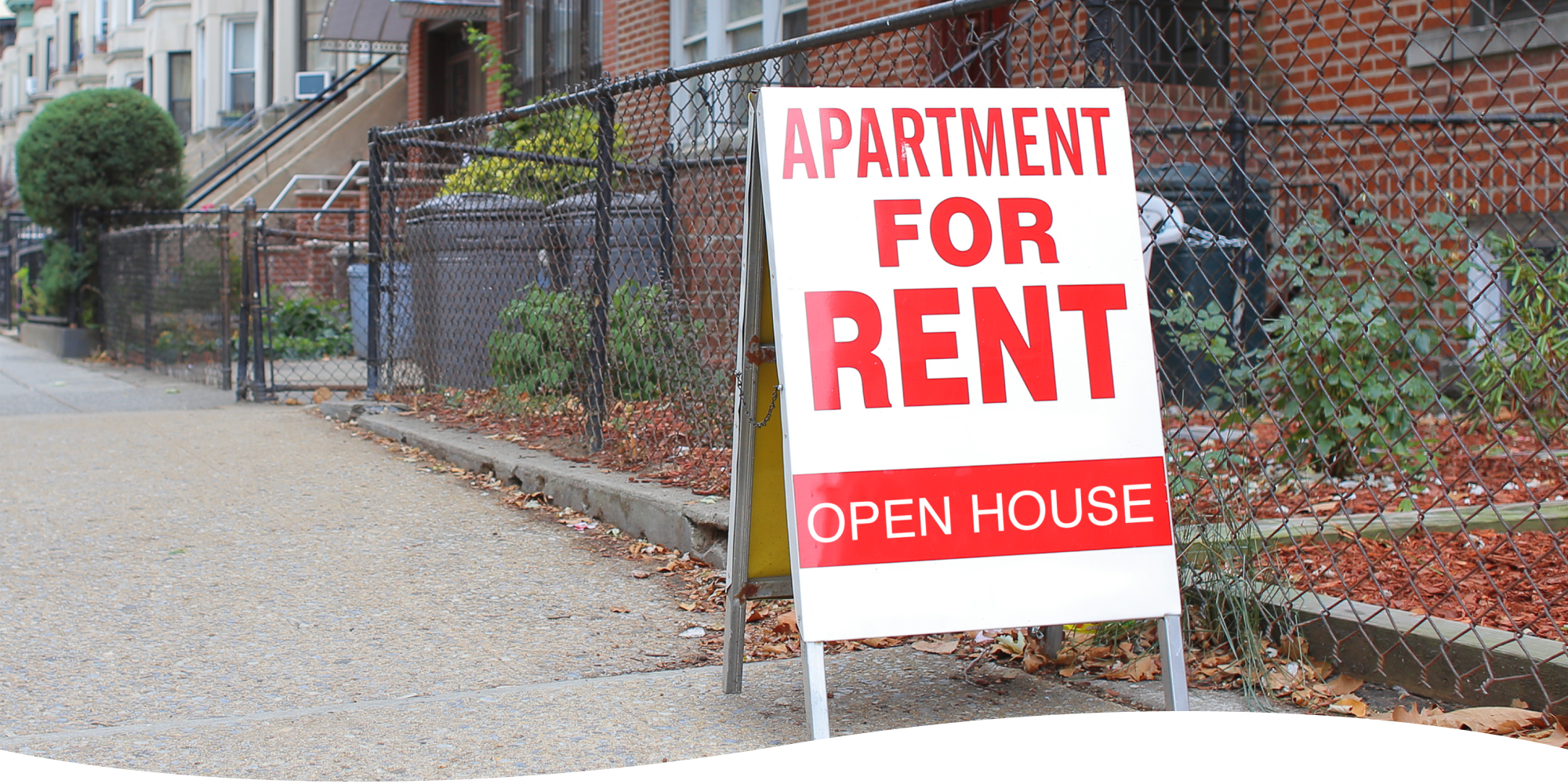Know Your Rights: New York State Rent Increase Laws
24 May 2024 • 7 min read

New York boasts a unique housing market. According to the National Low Income Housing Coalition, 46% of the 7.5 million households in New York are renters.
That’s a lot of people vulnerable to unexpected rent increases! So, understanding New York state rent increase laws is imperative for protecting your housing stability.
Keep reading to learn how much your landlord can increase your rent and what you can do in response to an increase as a tenant.
- New York Rent Increase Laws
- How To Negotiate a Rent Increase in New York
- How To Determine Whether an Increase Is Legal
- Final Thoughts: New York Rent Increase Laws and How To Navigate Them
New York Rent Increase Laws
New York’s rent increase laws focus on limiting deposits, reducing fees, preventing unfair practices, and setting clear notice periods. Let’s break it down a little more…The most recent state legislature is the Housing Stability and Tenant Protection Act of 2019 (HSTPA), which offers many new protections for renters, particularly around rent-controlled apartments (apartments with strict limits on allowable rent increases). Importantly, this law applies to the whole state, including New York City residents.
Here’s the breakdown:
Security Deposit Limits
- Landlords can charge no more than one month’s rent as a security deposit. They also cannot charge a deposit and request the last month’s rent payment in advance.
- For instance, if you find a great place for $2,000/month, your landlord can only charge you $2,000 as a security deposit. This applies to both one-year and two-year leases.
- Remember, large deposits could be a sign of a rental scam.
Reduced Fees
- Credit checks and background check fees have been reduced. Property owners can now only charge a maximum of $20 for a background check, and they must also give you a copy of the report.
- You can’t be charged a late fee until you’re at least five days late. Plus, your landlord can only charge you $50 or 5% of your monthly rent, depending on which one is cheaper.
No More Blacklists
- A tenant blacklist is a secretive list landlords may check before they take you on as a tenant. If you’ve ever taken legal action against a landlord, you may have been added to the list, even if you had legitimate reasons, and it can make it harder for you to find a new place to live.
- Tenant black lists are now illegal, and landlords who can’t provide a legitimate reason for rejecting your application will be fined.
Lengthier Notices About Rent Increases and Non-Renewals
- Landlords must give you a written notice in advance if your rent goes up by 5% or more.
- They must also provide a notice if they decide not to renew your current lease. The amount of notice depends on how long you’ve been living in your current place:
- If you’re in your first year at your current place or are a month-to-month tenant, you are entitled to a 30 days' notice.
- If you’re in your second year at your current place, you will receive a 60 days' notice.
- Lastly, if you’ve been in your home for over two years, you'll receive a 90 days’ notice.
Rent Control Considerations
- New laws also affect how much your landlord can increase your current rent in rent-controlled apartments. Rent-regulated units have strict laws about how much their rent can increase from year to year.
- These affordable housing options are very popular with tenants due to the cost, but most rent-regulated apartments were built before the 1970’s.
- If the increase is due to major capital improvements (MCI), your rent can increase by 2% annually (at most).
- If the increase is due to an individual apartment improvement (IAI), like painting the walls or installing new appliances, the most they can charge is $89.29 if there are fewer than 35 units and $83.33 for buildings with more units.
- Regular rent increases are also limited to a max of 7.5% annually.
Special Protections for Renters Living in Manufactured Homes
- Manufactured home renters also got well-deserved protections. Their rent can only increase by 3% unless the park owner provides a justifiable reason to raise it by as much as 6%.
- The max late fee in mobile home parks has also been reduced from 5% to 3%. Renters who enter a rent-to-own agreement also receive better protection.
These regulations can be complex, but understanding them is key to your fair treatment as a renter. You can learn more about New York rent increase laws from the New York State Attorney General or the New York Rent Guidelines Board if you’re in the city.
How To Negotiate a Rent Increase in New York
So, there’s good and bad news regarding New York rent increase laws. Firstly, rent increases must be announced within a reasonable time frame. As mentioned above, this will vary depending on how long you have lived in your current place.
But let’s talk about the elephant in the room — there’s no limit on how much rent can go up in New York outside of rent-controlled units. That’s scary, but there are things you can do:
Offer a Longer Lease Term
Stability benefits both you and your landlord. Offer to sign a longer lease (say, two years) in exchange for a lower increase.
Research the Competition
Check out similar apartments in your area. If your landlord’s proposed rent is way about the average, point this out respectfully.
Knowing the going rates will also help if you do end up moving. Just remember to also stay organized while moving out to reduce any additional stress from the situation.
Highlight Your Good Tenant Status
Always pay rent on time? Never cause problems or throw wild parties? Remind your landlord of this – proving how responsible you are just might help.
Remember To Cover Yourself With Renters Insurance
Renters insurance looks great on an application. While it is not a requirement in the state of New York, having renters insurance is a great way to demonstrate you’re a responsible tenant. And we’ve got a whole guide to renter’s insurance in New York if you’re still learning about the subject.
Landlords are required to have a policy to cover damage to the building and liability coverage in case they’re deemed responsible for an incident, but that coverage doesn’t protect your belongings or incidents you’re responsible for.
So, it’s in their best interest to house renters who do their due diligence to avoid disputes down the line. When you add the benefits of being insured on top of that, you can’t possibly go wrong with having renters insurance at your disposal.
How To Determine Whether an Increase Is Legal
Understanding rent increases in New York can be tricky, so let’s get into the details!In Non-Rent-Controlled Apartments
If you live in a market-rate apartment (without rent control), the most important factor is whether your landlord gave you proper notice.
If they followed the notice periods outlined in New York rent increase laws, the increase probably falls within their legal rights — even if it feels unreasonably high.
Unfortunately, this leaves renters vulnerable to extreme increases. In fact, as of July 2023, rent averages in the Big Apple reached a whopping $5,600 per month.
If you’re one of the one million renters living in a rent-stabilized unit in the city, it gets a bit more complicated.
In Rent-Stabilized Apartments
The laws around rent increases in a rent-controlled unit aren’t as clear-cut as those in market-rate apartments. New York landlords can request rent rate increases based on:
- Major capital improvements (MCI): building-wide upgrades, like a new roof.
- Individual apartment improvements (IAI): changes to your specific unit, like new appliances.
- Regular rent increases: These have a maximum set percentage per year.
With each of these, a landlord can overstep their bounds.
Perhaps your landlord needs to buy a new fridge for your unit. While at it, they might realize the oven could be replaced, too. They could probably decide to charge you more to help offset the cost of these new appliances.
If your unit is rent-controlled, your landlord must file a request with the Division of Housing and Community Renewal (DHCR) before they start renovating your apartment. They can’t simply take on additional charges without having those approved. Plus, they must provide you with notice if you’re living in the unit.
Both of the improvements mentioned above are also considered temporary. After 30 years, the charge should be removed from the rent. So, if you’ve got any old MCI charges on your rent from the 1970s, your landlord needs to make sure they drop those from the rent.
Even with proper procedures, a rent increase can still feel unfair. New York’s rising housing costs are a real issue for renters, which is why it’s important to know the laws and what landlords are and aren’t allowed to do.
If you think a rent increase might violate the regulations, don’t hesitate to contact organizations like Tenants & Neighbors or the NYC Housing Preservation & Development for help.
Final Thoughts: New York Rent Increase Laws and How To Navigate Them
New York’s rental market is tough, but you’ve got tools at your disposal. Understanding rent increase laws helps protect you and your housing stability.
This is especially true since the 2019 reforms for New York’s rent increase laws aimed to level the playing field. Which, unfortunately, is still opposed by investors who argue those reforms are “economically infeasible” as they try to have them repealed.
No one can guarantee rent hikes won’t affect you, but knowledge is power. Along with learning your rights, having solid renters insurance is essential. Whether you stay put or seek more affordable housing, Goodcover provides peace of mind in knowing you’re protected with affordable, high-quality renters insurance.
Worried about a rent increase? Get a quote for peace of mind — plus, it may help with negotiations.
Note: This post is for informational purposes; insurance regulation and coverage specifics vary by location and person. Check your policy for exact coverage information.
For additional questions, reach out to us – we’re happy to help.
More stories
Team Goodcover • 19 Aug 2024 • 10 min read
Colorado Rent Increase Laws: A Comprehensive Guide for Renters
Team Goodcover • 16 Aug 2024 • 2 min read
Goodcover Weekly Recap | Week of August 11, 2024
Team Goodcover • 19 Jul 2024 • 6 min read
Goodcover’s Guide to Ohio Rent Increase Laws: Know Your Rights as a Renter
Team Goodcover • 19 Jun 2024 • 6 min read
New Jersey Rent Increase Laws: Know Your Rights
Team Goodcover • 10 Jun 2024 • 5 min read




